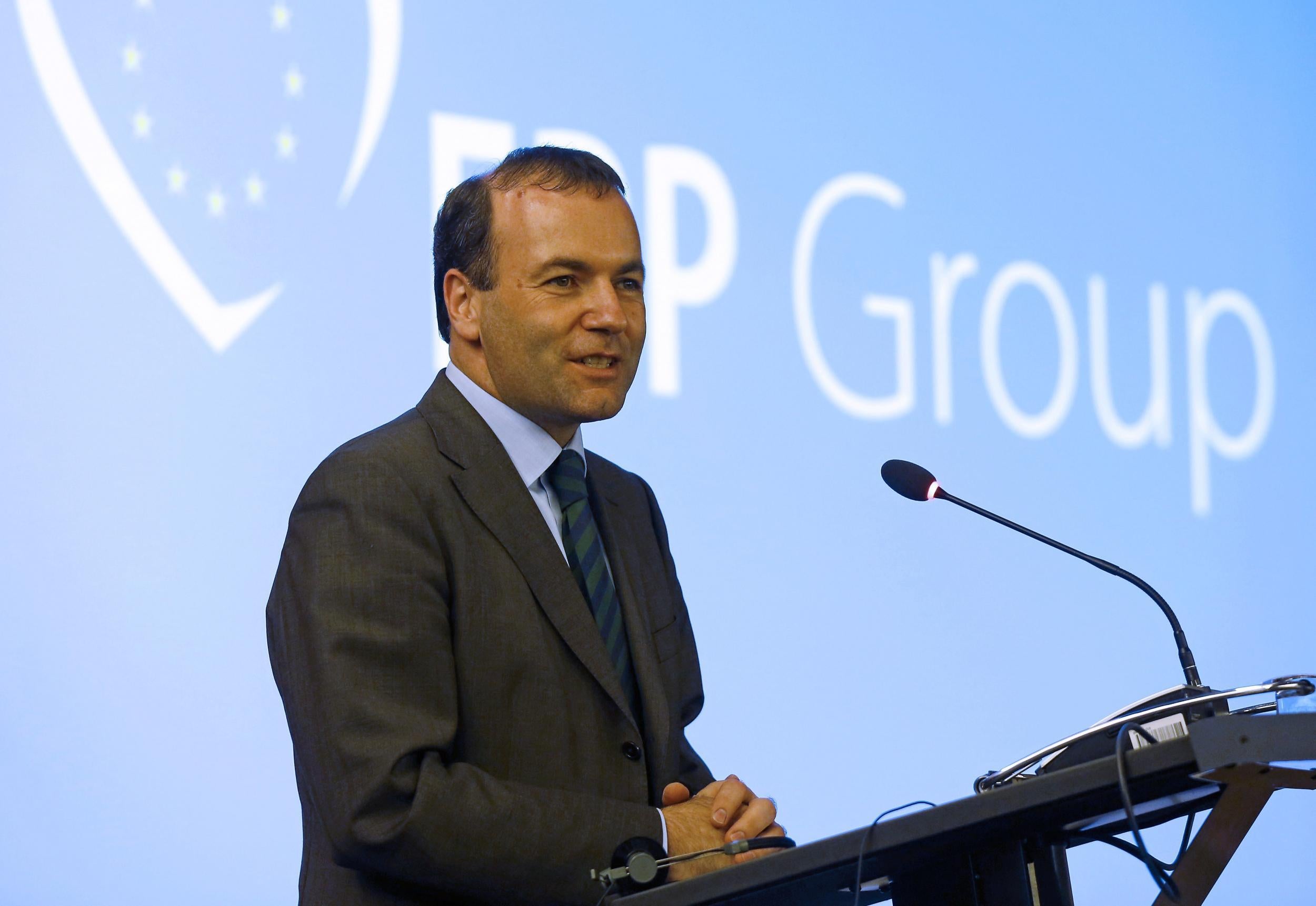Your support helps us to tell the story
From reproductive rights to climate change to Big Tech, The Independent is on the ground when the story is developing. Whether it's investigating the financials of Elon Musk's pro-Trump PAC or producing our latest documentary, 'The A Word', which shines a light on the American women fighting for reproductive rights, we know how important it is to parse out the facts from the messaging.
At such a critical moment in US history, we need reporters on the ground. Your donation allows us to keep sending journalists to speak to both sides of the story.
The Independent is trusted by Americans across the entire political spectrum. And unlike many other quality news outlets, we choose not to lock Americans out of our reporting and analysis with paywalls. We believe quality journalism should be available to everyone, paid for by those who can afford it.
Your support makes all the difference.The European Parliament’s biggest political grouping has said it supports the introduction of a European Union-wide ban on Islamic face veils
The European People’s Party adopted the measure as an official policy at its annual congress in Malta this week, claiming that the ban should be introduced “both for reasons of security and because seeing one another’s faces is an integral part of human interaction in Europe”.
The EPP, a centre-right liberal conservative grouping, holds 216 seats in the 751 member European Parliament and is affiliated with major governing parties such as Angela Merkel’s CDU, the French Republicains and Spain’s People’s Party.
The provisions for the banning of face coverings appear to explicitly target Muslims, being contained in a resolution named "For a cohesive society: Countering Islamic extremism" and mentioning the burqua and niquab by name.
Speaking to the German media following the passage of the resolution, Manfred Weber, the group’s leader in the European Parliament, said: “We want a total ban of face covering in the EU.”
Mr Weber is a member of Angela Merkel's CDU/CSU alliance in Germany.
The UK’s Conservative party was previously a member of the European People’s Party but it left to form the Alliance of European Conservatives and Reformists in 2009 because the EPP was not seen as eurosceptic enough.
Other provisions contained in the motion include calls for “the avoidance of concentrating thousands of third-country nationals in any one location” and a proposal to link welfare benefit payments to unspecified “mandatory integration requirements”.

The EPP’s resolution is not binding on any of its member parties but it gives an indication of the direction of its membership. An EPP source said the proposal should be discussed at EU level but accepted that such a ban would not be within current EU competencies.
The section relating to face coverings reads: “The EPP calls for … A ban on full-face veils (i.e. the burqa or niqab) in public places, both for reasons of security and because seeing one another’s faces is an integral part of human interaction in Europe”.
Face covering bans have been introduced in a number of European countries in recent years. Some bans have been justified on the basis of secularism and others on the basis of security, but all have effectively targeted Muslim women.
France passed a ban on face coverings in 2010, as have some areas of Switzerland.
In February, when asked in the House of Commons about the status of headscarves such as the hijab, Theresa May said: "I believe that what a woman wears is a woman’s choice.”

Join our commenting forum
Join thought-provoking conversations, follow other Independent readers and see their replies
Comments